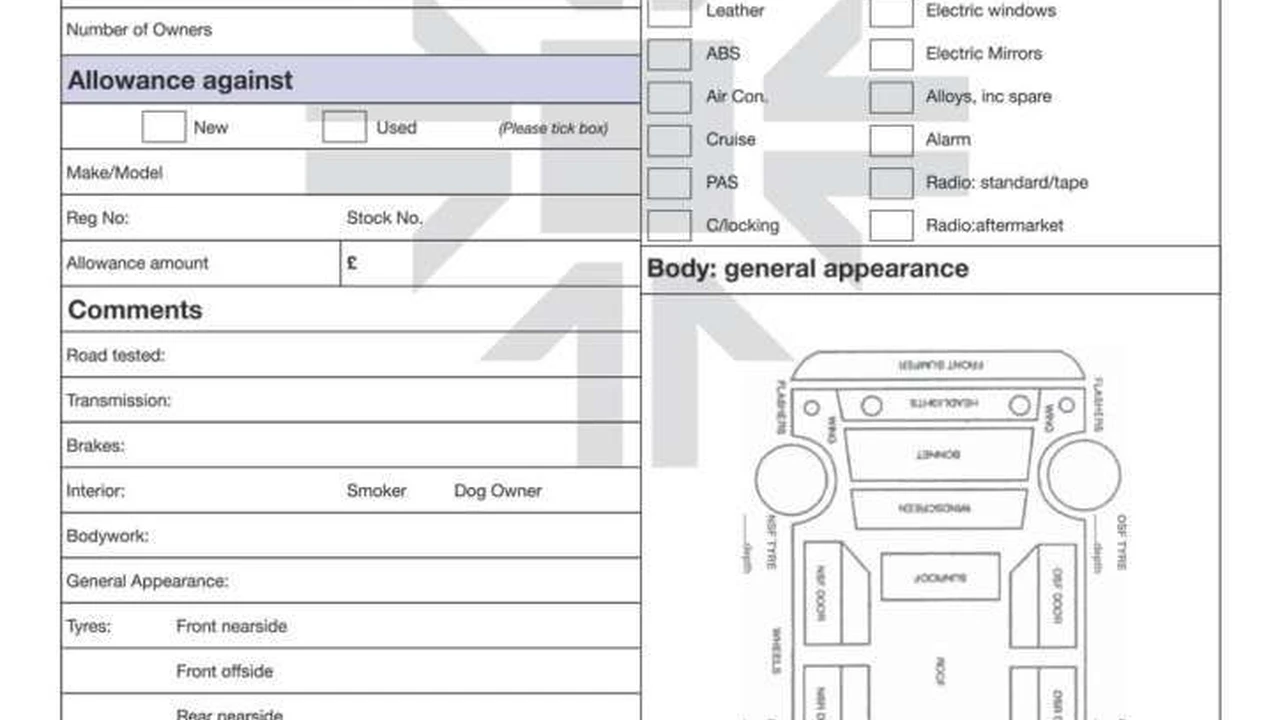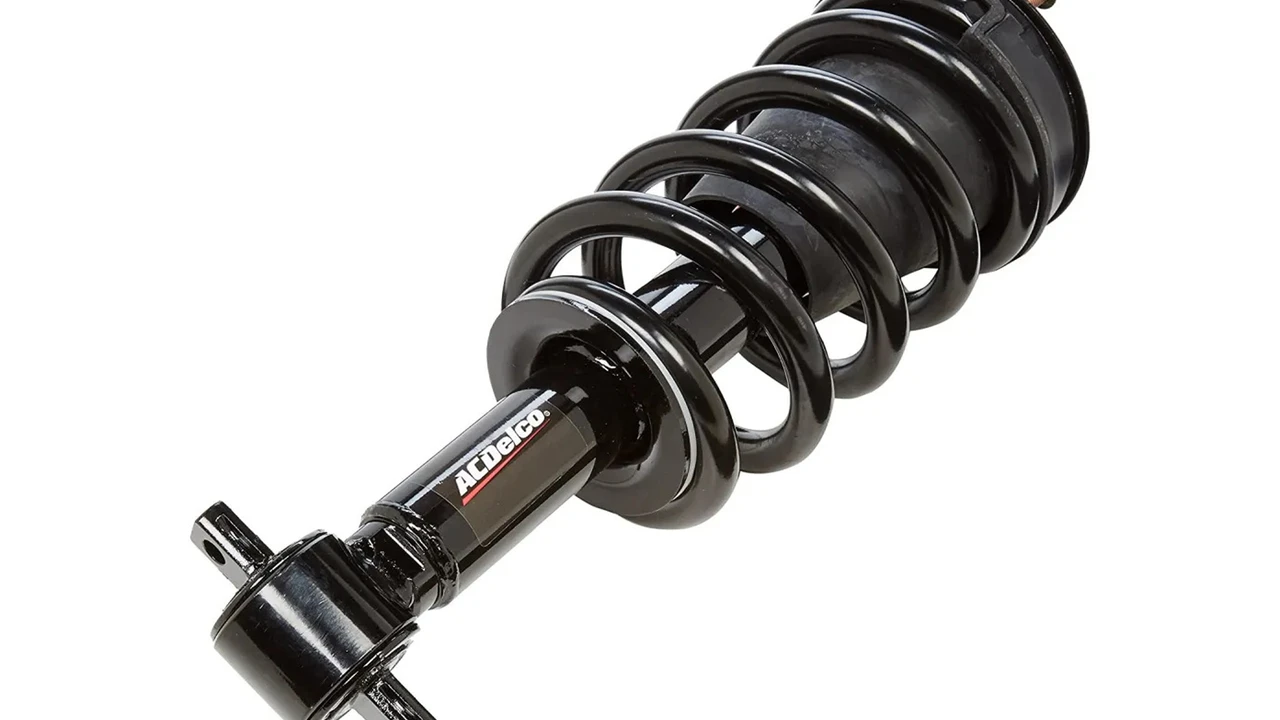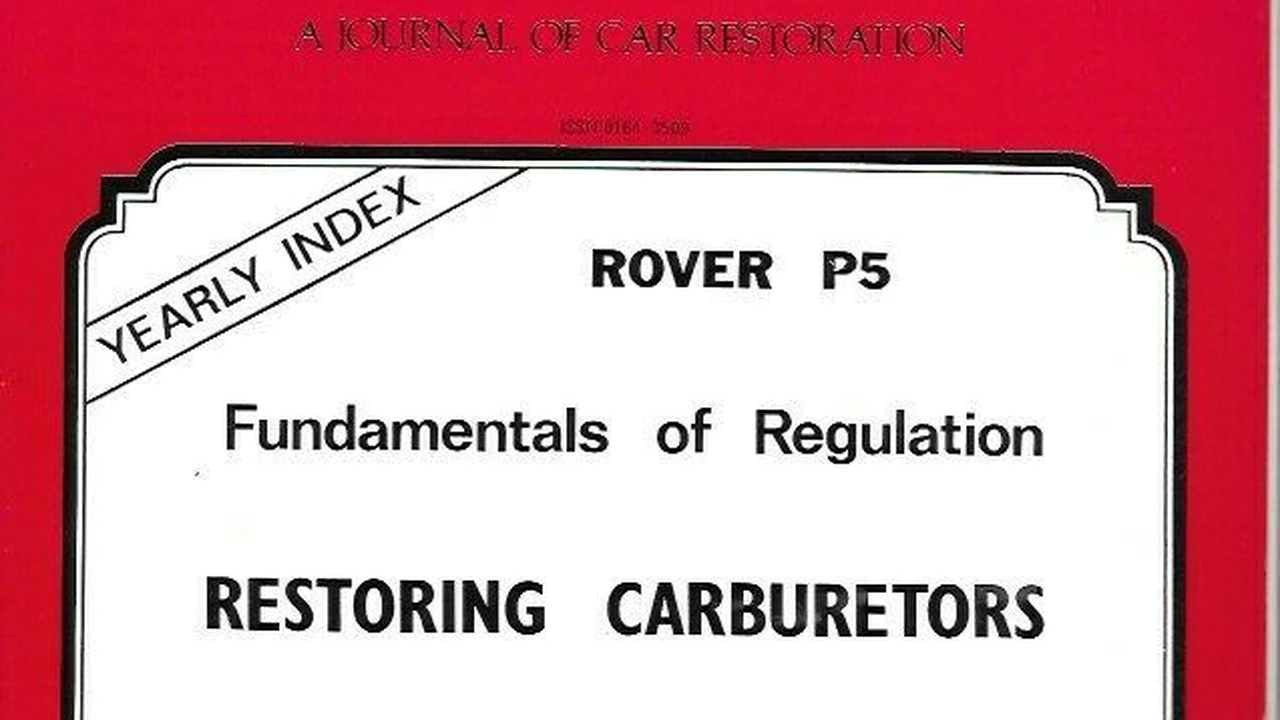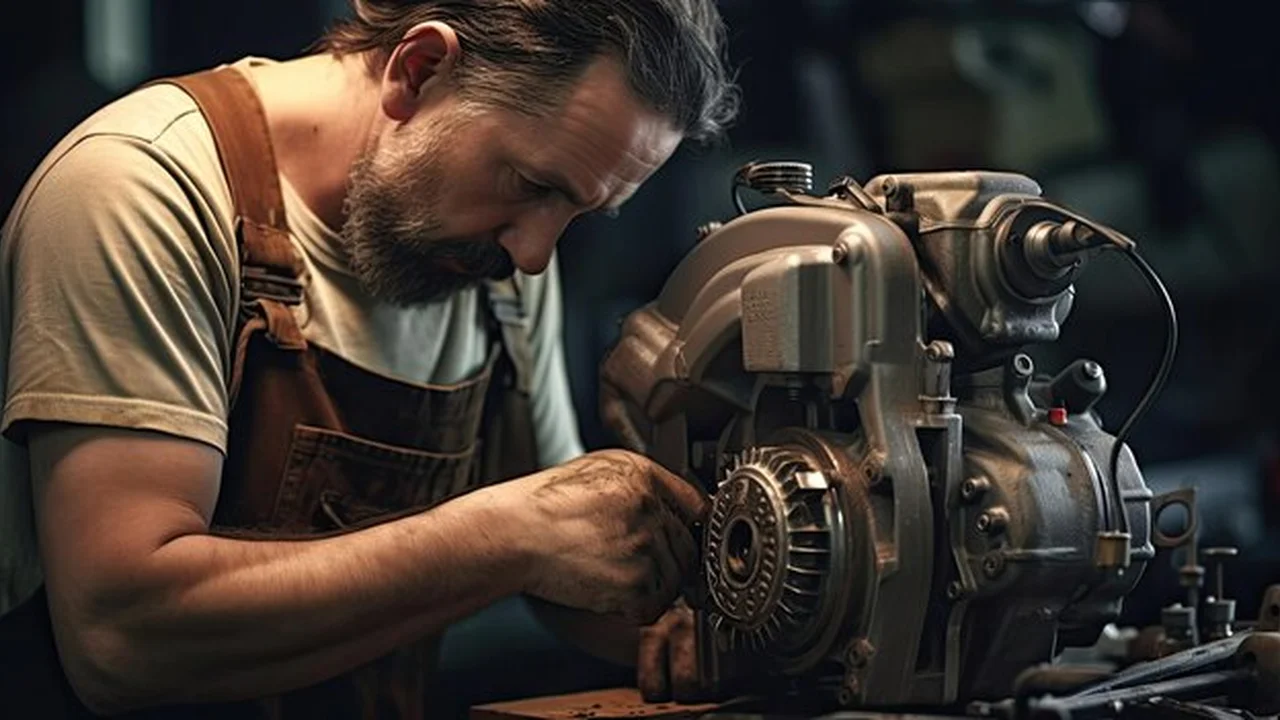Preparing Your Classic Car for Appraisal
Understand the crucial role of documentation in classic car valuation. Learn how to gather and preserve important records like original sales documents and maintenance history. Increase the value of your car.

Classic Car Appraisal Preparation Checklist: Ensuring Top Value
So, you're thinking about getting your classic beauty appraised? Smart move! Whether you're looking to sell, insure, or just understand its current worth, a professional appraisal is key. But before you call in the experts, there's some prep work you can do to make sure your car shines (literally and figuratively) and fetches the highest possible valuation. Think of it as getting your house ready for an open house – first impressions matter!
Exterior Detailing for Classic Car Appraisal: Making a Stellar First Impression
Let's start with the obvious: cleanliness. A sparkling clean car shows you care and immediately boosts its appeal. Here's the breakdown:
- Wash and Wax: This is non-negotiable. Use a car-specific soap (dish soap is a no-no – it strips the wax) and a soft microfiber wash mitt. Rinse thoroughly and dry with a microfiber towel. Follow up with a quality car wax to protect the paint and give it that showroom shine.
- Paint Correction (If Necessary): If your paint has swirl marks, scratches, or oxidation, consider a paint correction service. A professional detailer can use polishing compounds to remove these imperfections and restore the paint's luster. This can be a significant investment, but it can drastically improve the car's appearance and value.
- Chrome Polishing: Chrome trim is a hallmark of many classic cars. Use a chrome polish specifically designed for automotive use to remove rust, tarnish, and water spots. A little elbow grease can go a long way!
- Wheel and Tire Cleaning: Don't neglect the wheels and tires! Use a wheel cleaner to remove brake dust and grime. Dress the tires with a tire shine product to give them a deep black look.
- Glass Cleaning: Clean all the windows and mirrors inside and out with a glass cleaner. Streak-free glass makes a huge difference.
Interior Detailing for Classic Car Appraisal: Showcasing Originality and Care
The interior is just as important as the exterior. A clean and well-maintained interior suggests the car has been treated with respect.
- Vacuuming: Thoroughly vacuum the carpets, seats, and crevices. Use a crevice tool to get into hard-to-reach areas.
- Upholstery Cleaning: Clean the upholstery with a cleaner appropriate for the material (leather, vinyl, or fabric). Spot clean any stains. Consider professional detailing for heavily soiled interiors.
- Dashboard and Trim Cleaning: Clean the dashboard, door panels, and other interior trim with a cleaner designed for those materials. Avoid using harsh chemicals that can damage the surfaces.
- Odor Removal: Eliminate any unpleasant odors. An air freshener can help, but a more thorough cleaning may be necessary if the odor is persistent.
Gathering Essential Documentation for Classic Car Appraisal: Proving Authenticity and History
Documentation is king when it comes to classic car valuation. The more paperwork you have, the better. This helps prove the car's authenticity, history, and provenance. Here's what you should gather:
- Original Sales Documents: The original bill of sale, window sticker, and any other documents from the original purchase are invaluable.
- Maintenance Records: Keep records of all maintenance and repairs, including oil changes, tune-ups, and brake work. This shows the car has been properly cared for.
- Restoration Records: If the car has been restored, keep detailed records of the work that was done, including receipts for parts and labor.
- Ownership History: Compile a list of all previous owners, if possible. This helps establish the car's provenance.
- Awards and Recognition: If the car has won any awards or been featured in any publications, gather documentation of that.
- Photographs: Collect any photographs of the car, especially photos from when it was new or during restoration.
Addressing Mechanical Issues Before Classic Car Appraisal: Ensuring Optimal Performance
While a perfectly restored car is ideal, addressing obvious mechanical issues can significantly impact the appraisal. A car that runs well inspires confidence.
- Engine Tune-Up: Ensure the engine is running smoothly and efficiently. A tune-up can improve performance and fuel economy.
- Fluid Checks: Check all fluid levels, including oil, coolant, brake fluid, and transmission fluid. Top off any fluids that are low.
- Brake Inspection: Inspect the brakes for wear and tear. Replace brake pads or rotors if necessary.
- Tire Condition: Ensure the tires are in good condition and have adequate tread. Replace worn tires.
- Electrical System: Check all lights, gauges, and electrical components to ensure they are functioning properly.
Presenting Your Classic Car for Appraisal: Showcasing Its Best Features
On the day of the appraisal, present your car in the best possible light. Arrive on time, be polite and cooperative, and be prepared to answer questions about the car's history and condition.
- Arrive On Time: Punctuality shows respect for the appraiser's time.
- Be Polite and Cooperative: The appraiser is there to help you. Be polite and answer their questions honestly.
- Provide Documentation: Have all your documentation organized and ready to present.
- Highlight Key Features: Point out any unique or desirable features of the car.
- Be Prepared to Answer Questions: The appraiser will likely have questions about the car's history, condition, and restoration. Be prepared to answer them honestly and accurately.
Recommended Products for Classic Car Appraisal Preparation: Detailing Supplies and More
Here are a few product recommendations to help you prepare your classic car for appraisal:
- Meguiar's Gold Class Car Wash Shampoo & Conditioner: A high-quality car wash soap that is gentle on paint and effective at removing dirt and grime. (Approx. $15)
- Chemical Guys Butter Wet Wax: An easy-to-use wax that provides a deep shine and long-lasting protection. (Approx. $20)
- Mothers Chrome Polish: A trusted chrome polish that removes rust and tarnish and restores chrome to its original shine. (Approx. $10)
- Lexol Leather Cleaner and Conditioner: A gentle leather cleaner and conditioner that keeps leather upholstery soft and supple. (Approx. $25 for the set)
- 303 Aerospace Protectant: Excellent for protecting vinyl and rubber surfaces from UV damage and fading. (Approx. $20)
Product Comparison: Choosing the Right Detailing Supplies for Your Classic Car
With so many detailing products on the market, choosing the right ones can be overwhelming. Here's a brief comparison of some popular options:
- Car Wash Soap:
- Meguiar's Gold Class: Excellent overall choice, good for regular washing.
- Chemical Guys Mr. Pink: High-foaming, great for removing heavy dirt.
- Griot's Garage Car Wash: Concentrated formula, economical for frequent use.
- Wax:
- Chemical Guys Butter Wet Wax: Easy to apply and remove, provides a good shine.
- Meguiar's Ultimate Wax: Long-lasting protection, good for all paint types.
- Collinite 845 Insulator Wax: Highly durable, excellent for harsh weather conditions.
- Leather Care:
- Lexol: Trusted brand, gentle and effective cleaner and conditioner.
- Leatherique: More intensive restoration, good for heavily soiled leather.
- Griot's Garage Leather Care: Pleasant scent, good for regular maintenance.
Investing in Professional Detailing: When to Call in the Experts
While you can do a lot of the prep work yourself, sometimes it's best to call in the professionals. A professional detailer has the experience, equipment, and expertise to get your car looking its absolute best. Consider professional detailing if:
- Your car has significant paint damage or oxidation.
- The interior is heavily soiled or stained.
- You don't have the time or expertise to do the work yourself.
By following these tips, you can ensure your classic car is ready for appraisal and that you get the highest possible valuation. Good luck!
:max_bytes(150000):strip_icc()/277019-baked-pork-chops-with-cream-of-mushroom-soup-DDMFS-beauty-4x3-BG-7505-5762b731cf30447d9cbbbbbf387beafa.jpg)






